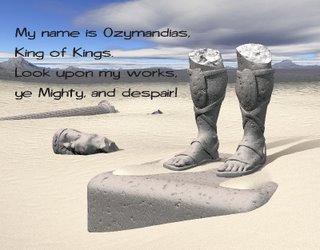Critical Analysis of Those Winter Sundays
Those Winter Sundays” is a short lyric in which the speaker remembers a moment in his childhood and contemplates about the sacrifices his father made for him then. This fragmentedviewpoint of the poem delivers its power, for the poem’s meaning depends upon the alterations between what the boy knew then and what the man, a father himself, possibly, identifies now.
The poem instigatessharply. The second word of the first line, assumes actions that have gone before, that the father got up early on other days as well as Sundays to help his family. In this first stanza the reader learns about the father rising in the cold to heat the house before the rest of his family gets up. The last line of the stanza contains the first hint of one of the poem’s central themes: “No one ever thanked him.”
In the second stanza, the narrator recalls waking as the cold, like ice, was “splintering, breaking” as a result of his father’s having lit a wood fire to warm the house. And “slowly” he would get up and dress, in the stanza’s last and the poem’s most difficult line, “fearing the chronic angers of that house.” At this point the reader can only guess at the source of those angers. The third and final stanza continues the actions of the narrator, who speaks “indifferently” to the father who has worked so early and so hard to heat the house for his family and has “polished my good shoes as well.”
Poetic Devices
The poetic device used here is Metaphor. It’s a fast moment in the poem that flowers into the last word, “offices,” a metaphor that expresses the fortitude required of long-term love, of manual labor, and of the official fatherly role. In the lines “wake and hear the cold splintering, breaking” cold is compared to a solid object that can splinter and break.
The words “cold, splintering breaking” reinforce the image of the earlier “blueblack” ice that was both climatic and situational. “Splintering” makes the image noticeable and pictorial as well as palpable. The “chronic angers” imply the despondency of the domestic situation and an emotional heat or chill that brings no comfort.
Central Idea of the Poem
The central idea of the poem is that love doesn’t always appear in a pleasant and warm form. Foregoing that, however, we have the imagery of cold and harshness, “cracked hands that ached,” “blueblack cold.” The reader also sees that the relationship between the speaker and his father was dysfunctional: “the chronic angers of that house.” The scenario that forms is that: a hard-working single father and his son live together and are not on good terms. The son feels unloved by his reticent father, and doesn’t at first recognize the love his father has for him. Later at the time the poem is written, the speaker recognizes this love, in its grim form, and feels regret.
Theme of the Poem
At its heart, the theme of the poem, “Those Winter Sundays” is about love. It is about the deep and serious ancestral love between a parent and a child. It is that type of love that gets you up at the crack of dawn, even when you’re shattered from a long week of hard work. This love is quiet and brave; it’s not showy which means, regrettably, that it can easily slide by unseen. The poem clearly defines unspoken love.
We only ever see the speaker’s father through the speaker’s point of view, but it’s not too hard to imagine what the old man’s life is like. “Those Winter Sundays” tell us that he wakes up early, works hard, and provides for his family.
Tone of the Poem
In “Those Winter Sundays,” the poet presents reminiscences of how his father expressed love for him through his actions. In particular, the speaker evokes that his father rose very early on Sunday mornings to stoke the furnace fire. Only when the house was warm did he awaken his son to dress.
The poet notes that the father also polished his son’s “good shoes,” indicating that he will be taking or sending his son to church. Thus, the father takes seriously the moral upbringing of his boy. The phrase “chronic angers” could mean that sternly scolds his son from time to time or that arguments are conventional in the household. It seems clear, though, that he is a good father. He accomplishes his Sunday tasks with aching, skin-cracked hands subjected during the week to the fierce cold he endures on the job. The speaker regrets now that he never took the time to thank his father for his apprehension and love.
Conclusion
“Those Winter Sundays,” by Robert Hayden, is a beautiful poem which tells a grown man’s outlook of his father. In the poem it is clear that there is distance between them and little communication. But it is revealed at the end of the poem, that love is actually present. The speaker in the story gave the image that the father was a hardworking man. It is obvious that the father was a very hard worker by the lines, “with cracked hands that ached from labor in weekday weather”. The poet knew that his father loved him because he didn’t show any affection toward him but little did he know his dad showed his affection by the work he did. So he thought his father was just there to be there and bring in money to help the household. So the poem comes to an end saying, “no one ever thanked him”. All the facts lead back to when they were younger and him doubting his father’s love. Now he is realizing that his dad really did love him and just showed his loved indirectly. But since he’s grown now, he understands what was really going on and how father has directed his love toward him.
Some online learning platforms provide certifications, while others are designed to simply grow your skills in your personal and professional life. Including Masterclass and Coursera, here are our recommendations for the best online learning platforms you can sign up for today.
The 7 Best Online Learning Platforms of 2022
- Best Overall: Coursera
- Best for Niche Topics: Udemy
- Best for Creative Fields: Skillshare
- Best for Celebrity Lessons: MasterClass
- Best for STEM: EdX
- Best for Career Building: Udacity
- Best for Data Learning: Pluralsight
















